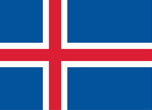
Call 0330 880 3600 Calls may be monitored or recorded. Opening Times.
- TRAVEL INSURANCE
- COVID-19 COVER
- More Options
- Help & Advice
- Existing Customers

Call 0330 880 3600 Calls may be monitored or recorded. Opening Times.

Need help?
UK Customer Services0330 880 3600*
Open Monday to Friday 9:00am to 6pm, Saturday 8:30am to 4pm and closed Sundays.
*Calls are recorded for training and quality purposes.

Official name: Republic of Iceland
Capital city: Reykjavík
Languages spoken: Icelandic, English
Population: Around 390,000
Currency: Icelandic króna (ISK)
Time zone: GMT (no daylight savings)
Driving side: Right
Climate: Cool oceanic climate, with chilly winters, mild summers, and fast-changing weather
Iceland, often called the “Land of Fire and Ice,” is a country of dramatic contrasts. Glaciers, volcanoes, geysers and lava fields share space with black sand beaches, waterfalls and hot springs. Reykjavík, the world’s northernmost capital, is a hub of Nordic culture, design, and nightlife, while much of the island offers raw natural beauty perfect for outdoor adventure.
Iceland is a volcanic island in the North Atlantic Ocean, located between Greenland and mainland Europe. Its landscape is shaped by glaciers, fjords, and geothermal activity. The interior Highlands are largely uninhabited, while the majority of people live along the coast. Natural hazards include volcanic eruptions, earthquakes, and strong storms.
Keflavík International Airport near Reykjavík is the main entry point, with direct flights from Europe and North America. Domestic flights connect the capital with smaller towns, while buses and ferries cover local travel. Renting a car is popular for exploring, but weather conditions can change quickly and many Highland roads are closed in winter.
Iceland is part of the Schengen Area, so UK citizens and many other nationals can enter visa-free for up to 90 days in a 180-day period. Longer stays require permits. The British Embassy in Reykjavík provides consular assistance.
The Icelandic króna (ISK) is the national currency. Credit and debit cards are accepted almost everywhere, even for small purchases, and ATMs are widely available. Iceland can be expensive, particularly for food and accommodation, but many natural attractions are free to access.
Iceland has a modern healthcare system with excellent hospitals and clinics, particularly in Reykjavík. English-speaking medical staff are common. Emergency services are reliable, but treatment costs for non-residents can be high. Travel insurance is strongly recommended to cover healthcare and evacuation if needed. Tap water is exceptionally clean and safe to drink.